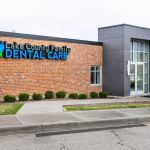Understanding Dental Pain During an Emergency
If you’ve ever experienced a sudden, sharp pain in your tooth or jaw, you know how overwhelming and distracting it can be. Dental pain, especially during an emergency, can be one of the most intense types of discomfort. I’ve had my share of dental mishaps, and I can tell you that waiting for emergency care while in pain can feel like an eternity. However, there are several strategies and remedies that can help you manage the pain until you’re able to see a dentist.
What Causes Severe Dental Pain?
Dental pain is often caused by a variety of factors, including cavities, gum disease, tooth infections, or a cracked tooth. I’ve learned that dental emergencies can happen without warning, whether it’s an accident, an infection, or a pre-existing dental condition that suddenly worsens. In many cases, the pain is caused by inflammation or infection, which can cause pressure and throbbing sensations in the affected area. The key is understanding what’s happening and knowing how to treat it as best as you can while waiting for professional care.
Tips for Managing Dental Pain at Home
While you’re waiting to get to the dentist, there are a few practical tips that can help you manage dental pain and provide some temporary relief. I’ve used many of these remedies in the past, and they helped me stay calm and more comfortable during painful situations.
1. Rinse With Warm Salt Water
One of the most effective home remedies for dental pain is a simple warm saltwater rinse. Saltwater can help cleanse the affected area, reduce inflammation, and promote healing. I’ve used this method myself when I had a toothache, and it really helped soothe the discomfort. Just mix half a teaspoon of salt into a glass of warm water and rinse your mouth several times a day.
2. Use Over-the-Counter Pain Relief
Over-the-counter pain relievers like ibuprofen or acetaminophen can be very effective in reducing the pain and inflammation caused by dental issues. I’ve found that these medications can help me stay comfortable until I’m able to get professional help. Just be sure to follow the recommended dosages and avoid placing painkillers directly on your gums or teeth, as this can cause further irritation.
3. Apply a Cold Compress
If your dental pain is accompanied by swelling, applying a cold compress to your cheek near the affected area can provide significant relief. The cold helps reduce swelling and numb the area temporarily. I remember using an ice pack on my face during a dental emergency, and it really helped numb the pain. Just be sure to wrap the ice in a cloth or towel to avoid frostbite.
4. Avoid Certain Foods and Drinks
While dealing with dental pain, it's important to avoid foods and drinks that can exacerbate the issue. Hot or cold items, sugary snacks, and acidic foods can all worsen the discomfort. When I had dental pain, I stuck to soft, lukewarm foods like mashed potatoes, yogurt, and soup. These foods are easier to eat and won’t irritate the affected area. Avoid chewing on the side of the pain to prevent aggravating it further.
When to Seek Immediate Emergency Care
In some cases, dental pain can indicate a more serious issue that requires immediate attention. If you’re experiencing symptoms such as severe swelling, difficulty breathing, or uncontrollable bleeding, it’s essential to seek emergency dental care right away. I’ve had a few occasions where the pain felt unbearable, and I knew something was wrong beyond just a simple toothache. In those moments, don’t hesitate to visit an emergency dental clinic or seek help from a 24-hour dentist.
Signs That You Need Immediate Dental Attention
There are certain signs that should prompt you to seek immediate emergency care:
- Severe or continuous bleeding: If the bleeding doesn’t stop after applying pressure for 10 minutes, it’s a sign you need professional help.
- Swelling or redness: Swelling around your mouth, gums, or face can indicate an infection that requires urgent attention.
- Fever: A fever accompanying dental pain could mean the infection has spread, and immediate care is needed.
- Trauma to teeth: If you’ve experienced a blow to the mouth or knocked out a tooth, you should seek care as soon as possible.
Dealing with Anxiety and Stress During a Dental Emergency
Dental emergencies can cause not only physical pain but also emotional distress. The anxiety of waiting for care can sometimes make the situation feel worse. I remember feeling overwhelmed during one of my own dental emergencies, as the uncertainty of how long it would take for help to arrive made the pain even more unbearable. In those moments, I found that practicing deep breathing exercises and staying as calm as possible helped me manage my anxiety.
Calming Techniques to Reduce Stress
Here are a few techniques that can help calm your nerves while waiting for emergency dental care:
- Deep Breathing: Focus on slow, deep breaths to relax your body and reduce stress.
- Visualization: Picture yourself in a peaceful, relaxing environment to take your mind off the pain.
- Distraction: Engage in a calming activity, like listening to music or reading, to keep your mind off the pain.
Prevention Tips to Avoid Future Dental Emergencies
Although dental emergencies can happen unexpectedly, there are steps you can take to reduce the likelihood of experiencing severe pain in the future. Regular dental checkups, good oral hygiene, and protecting your teeth during sports are all essential components of maintaining healthy teeth and gums. I’ve learned that the best way to prevent future emergencies is by taking proactive care of my dental health. It’s easier to prevent than to treat an emergency, and regular visits to the dentist are crucial for spotting potential issues early.







 Kimberly Blaser, DDS5.0 (45 review)
Kimberly Blaser, DDS5.0 (45 review) Lake County Family Dental Care4.0 (449 review)
Lake County Family Dental Care4.0 (449 review) Small World Dental - Pediatric Dentist and Orthodontist4.0 (1469 review)
Small World Dental - Pediatric Dentist and Orthodontist4.0 (1469 review) Triangle Dentistry: Smith, Tart & Associates4.0 (329 review)
Triangle Dentistry: Smith, Tart & Associates4.0 (329 review) Palatine Dental Associates4.0 (334 review)
Palatine Dental Associates4.0 (334 review) Inverness Dental Care | Dr. Payal Trivedi5.0 (252 review)
Inverness Dental Care | Dr. Payal Trivedi5.0 (252 review) The Importance of Oral Health Education During Pregnancy for a Healthy Pregnancy
The Importance of Oral Health Education During Pregnancy for a Healthy Pregnancy Best Tips for Brushing Your Teeth Properly for Healthy Gums: Essential Techniques for Oral Health
Best Tips for Brushing Your Teeth Properly for Healthy Gums: Essential Techniques for Oral Health Why Skipping Dental Checkups Can Lead to Bigger Oral Health Problems
Why Skipping Dental Checkups Can Lead to Bigger Oral Health Problems Advantages of Porcelain Dental Restorations
Advantages of Porcelain Dental Restorations How Can Diabetes Cause Tooth and Gum Problems? Preventing and Managing Oral Health Issues
How Can Diabetes Cause Tooth and Gum Problems? Preventing and Managing Oral Health Issues Healthy Habits for Promoting Good Oral Health and Hygiene: Tips for a Healthy Smile
Healthy Habits for Promoting Good Oral Health and Hygiene: Tips for a Healthy Smile